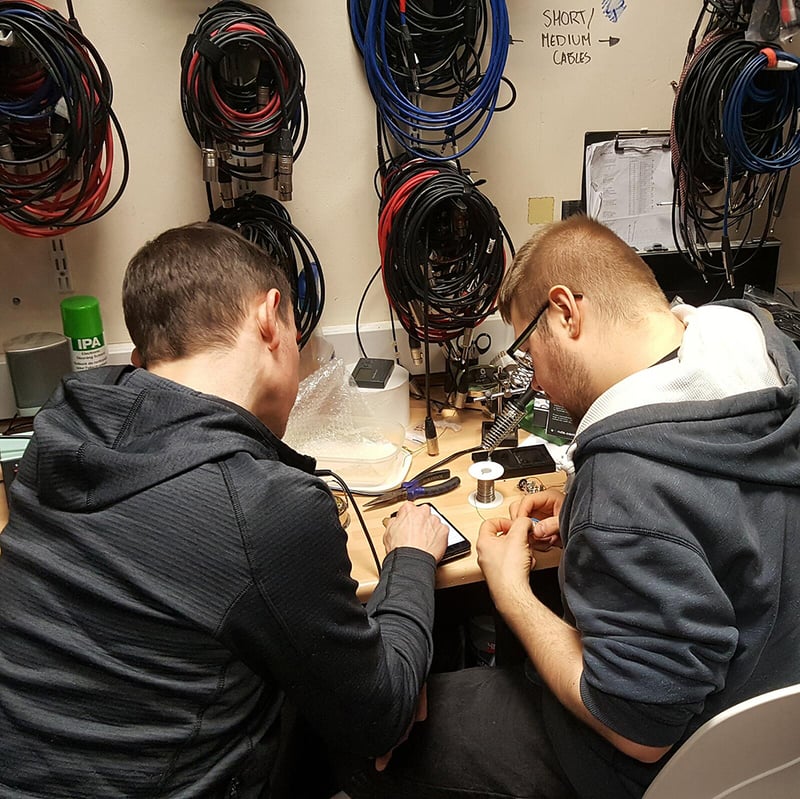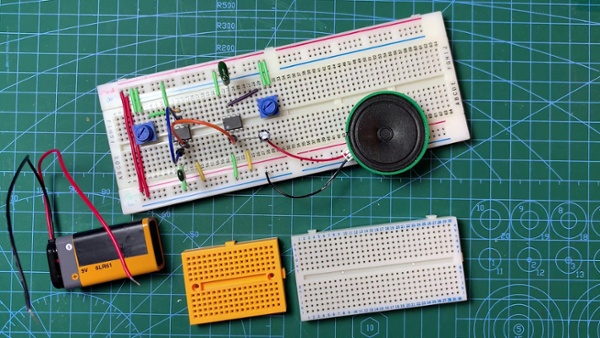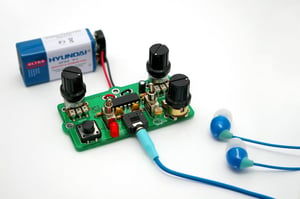If you're a creative person who likes making music it's likely you may have thought about building your own FX instruments. Although the process may seem daunting at first, it's a lot easier to get started than you think...
If you're interested in building your own custom devices but don't know where to start, don't worry, you're not alone. Perhaps you have lots of great ideas for hardware effects processors, guitar pedals or synthesisers, but don't know how to bring them to life. Building the knowledge of electronics required to bridge the gap between a great idea and its execution is something we often support students with. We are blessed with a team of talented dBs tutors who are passionate about creating custom audio tools, as well as great music.

If you're brimming with ideas and you can't wait to build something yourself, a great place to begin is breadboarding electronics.
What is breadboarding?
Put simply, breadboarding is a way of prototyping electronic circuit design without having to commit to soldering components to a circuit board. The board is therefore reusable and perfect for experimenting. Using breadboards is popular with beginners, DIY builders and in education. It's the best place to start learning about electronics and you can produce some really interesting circuits using the technique, that make a lot of noise and are great fun too.
In the video below MA Innovation In Sound course leader and breadboarding expert Stu Welsh introduces us to three different breadboards with an overview of how they work.
The Atari Punk Console

If you want to start building DIY instruments or FX, the best place to start is with breadboarding. Begin by learning about and creating simple electronics circuits. Once you have completed a few builds your knowledge of components, circuitry and electronics will start to grow and you'll be able to create your own breadboarded prototypes for the instruments you imagined creating. But where do you begin?
The Atari Punk Console
A great entry-level circuit, which is like a right of passage for those getting into music-based electronics, is the Atari Punk Console. The Atari Punk Console or often referred to as an APC is based on a stepped tone generator by Forest M. Mimms III. It produces lo-fi sounds resembling those from the old style Atari games. The Punk originally surfaced in a Radio Shack DIY book published in the 1970s. It's built around two 555 timer chips. In audio terms, it features a square wave oscillator which triggers a pulse generator. It can be built at a low cost and features only a few parts, which make it a good place to start. There are also plenty of build-your-own kits like the Rakit Mini available to order online and they can be powered using a simple 9-volt battery.
Building an Atari Punk is the perfect project to see if you have a taste for DIY electronics. Before you start ordering breadboards and components there are some essential tips you should follow as a beginner. We consulted Stu Welsh for some practical home breadboarding advice. Stu suggests you consider the following tips when building your first Atari Punk or other breadboarding projects:
Tip 1 - Learn your schematics
Tip 2 - Place components on your diagrams
Tip 3 - Get to know your components' datasheet
Tip 4 - Beginners always use a battery
Want to design and manufacture your own musical devices? Then our BA degrees in Electronic Music Production and Music Production and Sound Engineering might be for you.


